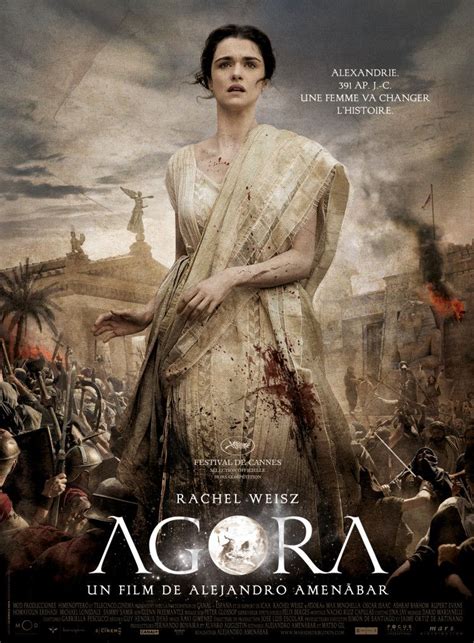Agora

Description:
Agora is a historical drama film set in ancient Alexandria, Egypt, during the Roman Empire. It follows the story of Hypatia, a female philosopher and mathematician, as she navigates political and religious turmoil in a society that is increasingly hostile towards intellectual pursuits. The film explores themes of science, religion, and gender roles.Keywords:
Hypatia, Astrophysics, Religious Conflict, Alexandria, PhilosophyIs the movie Agora historically accurate?
"Agora," directed by Alejandro Amenábar, is a historical drama set in 4th century Alexandria, focusing on the life of the philosopher Hypatia. While it captures some historical events, such as the rise of Christianity and the conflict between pagans and Christians, it takes creative liberties for dramatic effect. The film portrays Hypatia's intellectual pursuits and the sociopolitical turmoil of the time, but some character interactions and specific events are fictionalized. Overall, it provides a broad historical context rather than a strictly accurate account.
Is the movie Agora worth watching?
"Agora," directed by Alejandro Amenábar, is a historical drama set in ancient Alexandria, focusing on the life of the philosopher Hypatia. The film explores themes of science, religion, and the conflict between knowledge and belief during a tumultuous period. It features strong performances, particularly by Rachel Weisz as Hypatia, and is visually striking. While it may not appeal to everyone due to its slower pace and philosophical content, it offers thought-provoking insights and is worth watching for those interested in history and intellectual discourse.
What was the movie Agora about?
"Agora" is a historical drama set in 4th-century Roman Egypt, focusing on the life of Hypatia, a renowned female philosopher, mathematician, and astronomer in Alexandria. The film explores her struggle for knowledge and reason amid the rise of religious fanaticism, particularly the conflict between pagans and Christians. As societal tensions escalate, Hypatia defends scientific inquiry while facing personal and political turmoil. The narrative highlights her intellectual pursuits, the tragedy of her fate, and the broader conflict between science and religion during a tumultuous period.
What happens at the end of the movie Agora?
At the end of "Agora," set in ancient Alexandria, Hypatia, the female philosopher and astronomer, faces the rise of religious fanaticism. After a series of violent events instigated by Christians against pagans, Hypatia is ultimately killed by a mob. The film concludes with her death symbolizing the tragic loss of knowledge and reason in the face of dogma and ignorance. The closing scenes reflect on the destruction of the Library of Alexandria and the decline of intellectual inquiry, highlighting the historical conflict between science and religion.
Explore More Categories:
Gangster Contemporary Relationships Drug Trafficking Identity Crisis Exploitation Post Communist Romania Social Commentary Control Poverty Cloister African American Tragic War Authenticity Economic Collapse Visual Storytelling Suspense Sound Design Satire Political Documentary Live Action Patriotism American Family Road Trip Women Empowerment